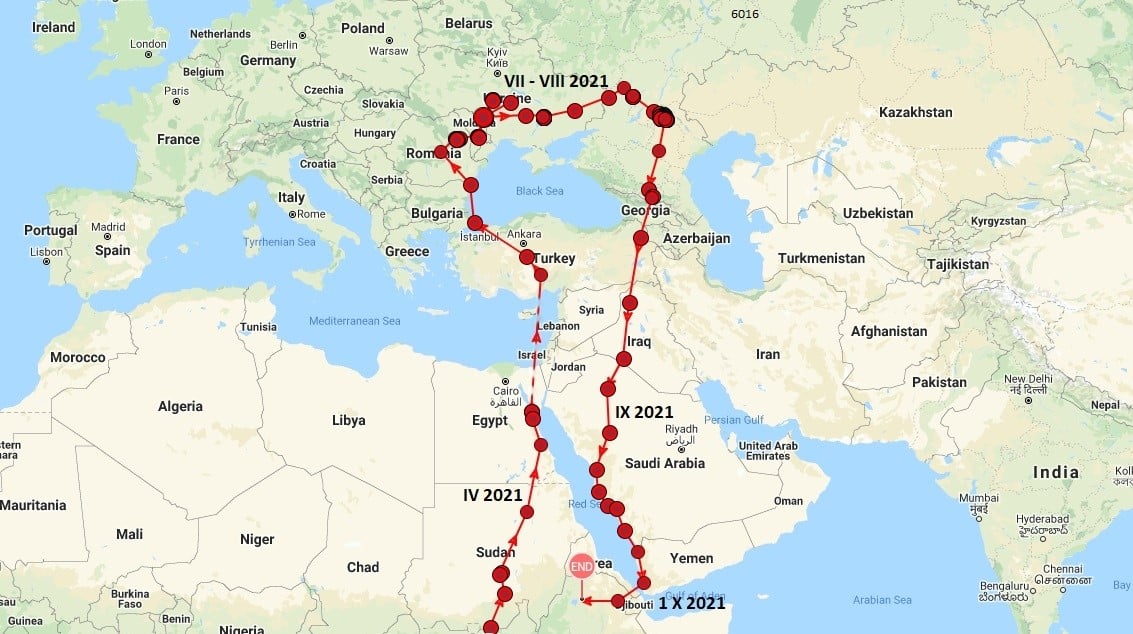Justyna wrote: October 6th, 2021, 2:26 pm
Thank you very much!

I copied the English translation from Facebook:
#storksczarnneonline

Pioneer - stork from Złoczew (year ' 20)
"The autumn hike of a black stork hatched in 2020 in the nest in the forests of Nadleśnictwo Złoczew Lasy Państwowe RDP in
Łodzi looks very interesting. This stork in 2021 spent the summer in the south of Ukraine and in Russia between Don and Volga, far beyond the Azov Sea

. Mid September 2021 started the fall hike.
He could have returned ′′ by footsteps ′′

through Russia, Ukraine, Romania, Bulgaria and Turkey, but he headed south - straight to the powerful Caucasus 🏔. He wasn't scared by the tops of over 5 k m above sea level, the most famous of which in Poland are Elbrus (5642 m) and Kazbek (5054 m). He flew into the mountains of the Caucasus from Russia through the Ardon river valley. He initially flew along the Osetinian War Road, but later abandoned the rock road and flew straight south

. His GPS tracked down just before the Caucasus line at 3606 m above the Caucasus border, which runs at about 3300 m above sea level. Furthermore, it was easier. He flew across Georgia, later across Eastern Turkey, western Iraq and flew into Saudi Arabia.
He didn't notice his friend from Estonia  -Eedi, who had already arrived earlier and stopped for a longer stop about 90 km from the Red Sea shore.
-Eedi, who had already arrived earlier and stopped for a longer stop about 90 km from the Red Sea shore. Our stork flew further and finally reached the Red Sea shore. And here comes a new, serious problem. The Red Sea has a width of about 220 km in that place

.
Such a flight over the water is within the range of a black stork, but it is also very exhausting, because there are no currents above the water 🌬, helping the land rise high into the air, and then glide, slowly losing altitude, but at the same time saving strength for further flight active.

Our stork chose a safer option and flew further overland south, right at the end of the Arabian Peninsula. He flew 1 X 2021 to Africa flying from Yemen to Djibouti through Bab al-Mandab strait, which is about 28,6 km wide here. Thus, our stork from Złoczew
has chosen a brand new one for Polish black storks, a variant of the autumn trip to Africa. 
Text and map: Prof. Piotr Zieliński Wydział Biologii i Ochrony Środowiska Uniwersytetu Łódzkiego
Lasy Państwowe
Wojewódzki Fundusz Ochrony Środowiska i Gospodarki Wodnej w Łodzi"
Map:




























